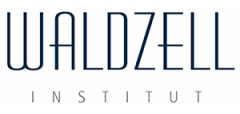Power with responsibility: Media gate keepers vs Public demand
Pat Mitchell, President and CEO of the Paley Centre for Media & philanthropist
There is no question that the media can be a force for positive social change. So why is it then, that we are so disconnected and how ill-informed? We know essentially that we have access to all the information we could possibly need, but we are either not accessing it or we are not using it. I am convinced, after 30 years of being inside and outside of the mainstream media, that a lot of the reasons why it is not a force for good but quite the opposite, a force for disconnection, misunderstanding, distortion of truth and facts, and a contributor to the disconnect between cultures, religions and countries, is not just that there is a certain degree of apathy or a lack of concern among the people who run media companies, but often because we, as media consumers and users, are not demanding the right kind of accountability. It can change when we do demand that kind of accountability.
We have the capability, the capacity, to export a different kind of image. To use everything from news to entertainment to improve our understanding of each other, to build bridges, and yet we have evidence from all over the world that we are not doing so today. If you look to commercial media, which are set up to make a profit, they will tell you that they can’t make that kind of program because such programs don’t make money or attract audiences. However, if they do hate radio or produce exploitative documentaries or news programs that grab people’s attention, that’s how they will meet their bottom line.
So the accountability factor comes back to us. What are we demanding of media? What are we expecting of it? How do we as media consumers navigate all these different sources of information and facts so that we can actually understand what is really reliable?
One example of change is in Afghanistan. After the fall of the Taliban, there was essentially no media left in the country. They had to rebuild it from scratch. So the people who went in to rebuild the infrastructure in Afghanistan were the public service broadcasters from around the world, like PBS in the United States, the BBC, French public television and many others. The restored infrastructure was built from the beginning by people who understood media as a powerful force.
Pretty soon that country had a very thriving media scene. There was also an attempt by a private group in that country to use the technology of cell phones, recognising that in the provinces they would not have television. In villages where infant mortality is as high as 75%, women could use cell phones simply by touching buttons and information would come up, in their language, about pre-natal care. In places where they could not get to midwives or any kind of medical service, these phones were actually used to give them information on how to deliver their babies. In those villages the infant mortality rate went down and maternal health improved.
Unfortunately today the media landscape is no longer in the hands of many different businesses. Globally it is in the hands of seven people. Seven to ten large, global conglomerates own most of it.
That is frightening. However, at the same time that the distribution gate-holders have become smaller in number, the Internet, with all its open access, has allowed many more millions of people and opinions to come in. How do we ensure, then, that what is coming in and comes back to us as consumers is reliable, trustworthy, factual, and helps us go about the business of being informed and engaged citizens in our countries? It is really part of the tension of where we are now. We have this complete and open ability through the Internet, and yet we know that a lot of what goes in there is not good.
There are two things that I think are essential. One is that in every single country there must be a thriving and supported public service media enterprise. Public service media is essential to the well-being of a society. That will only happen when the people who live in that country demand it. The other trend that is happening is that each of us, from whatever issues and causes we find ourselves motivated for engagement, understands the power of media in those causes, and uses it to expand for positive social change.
